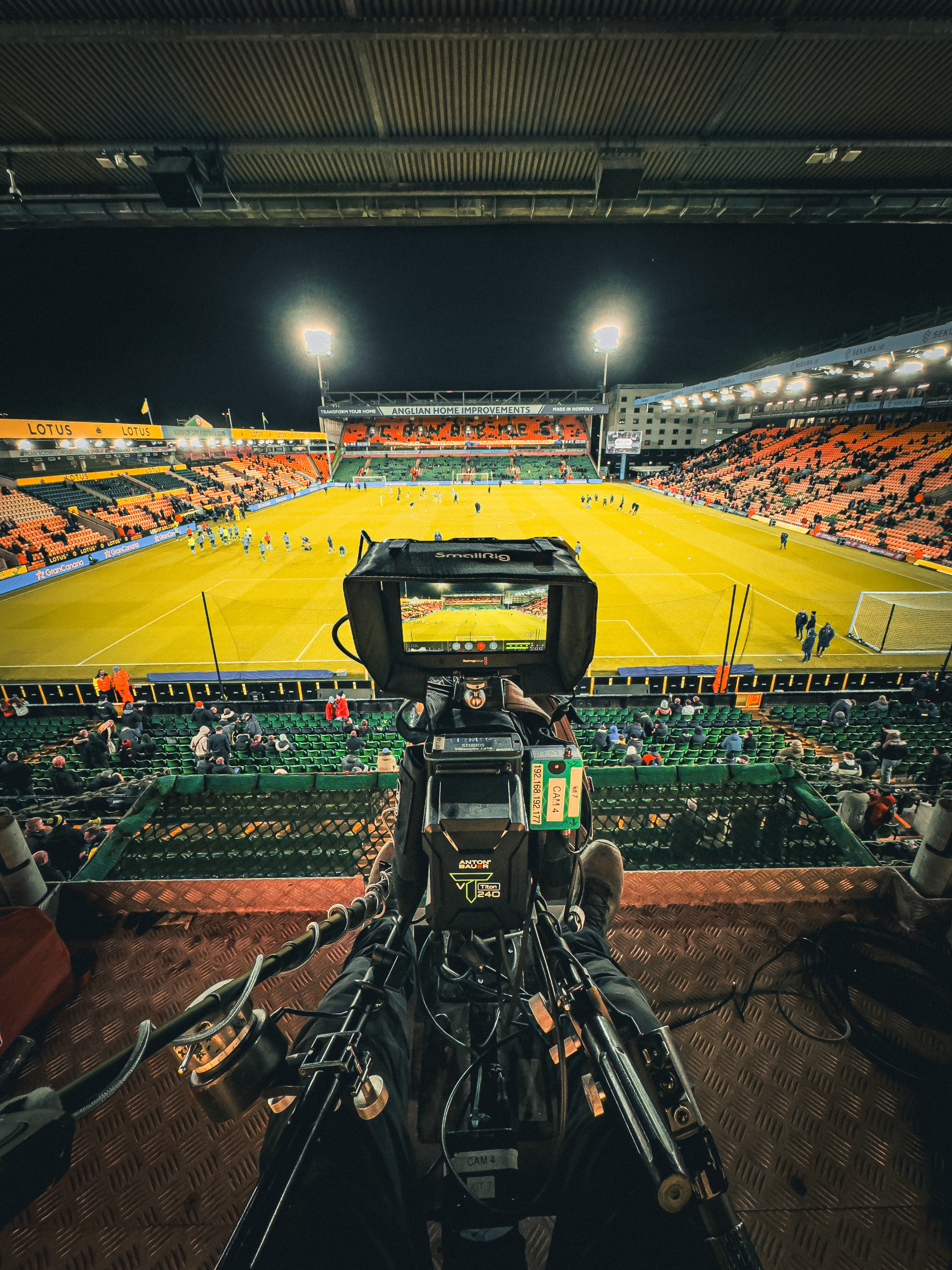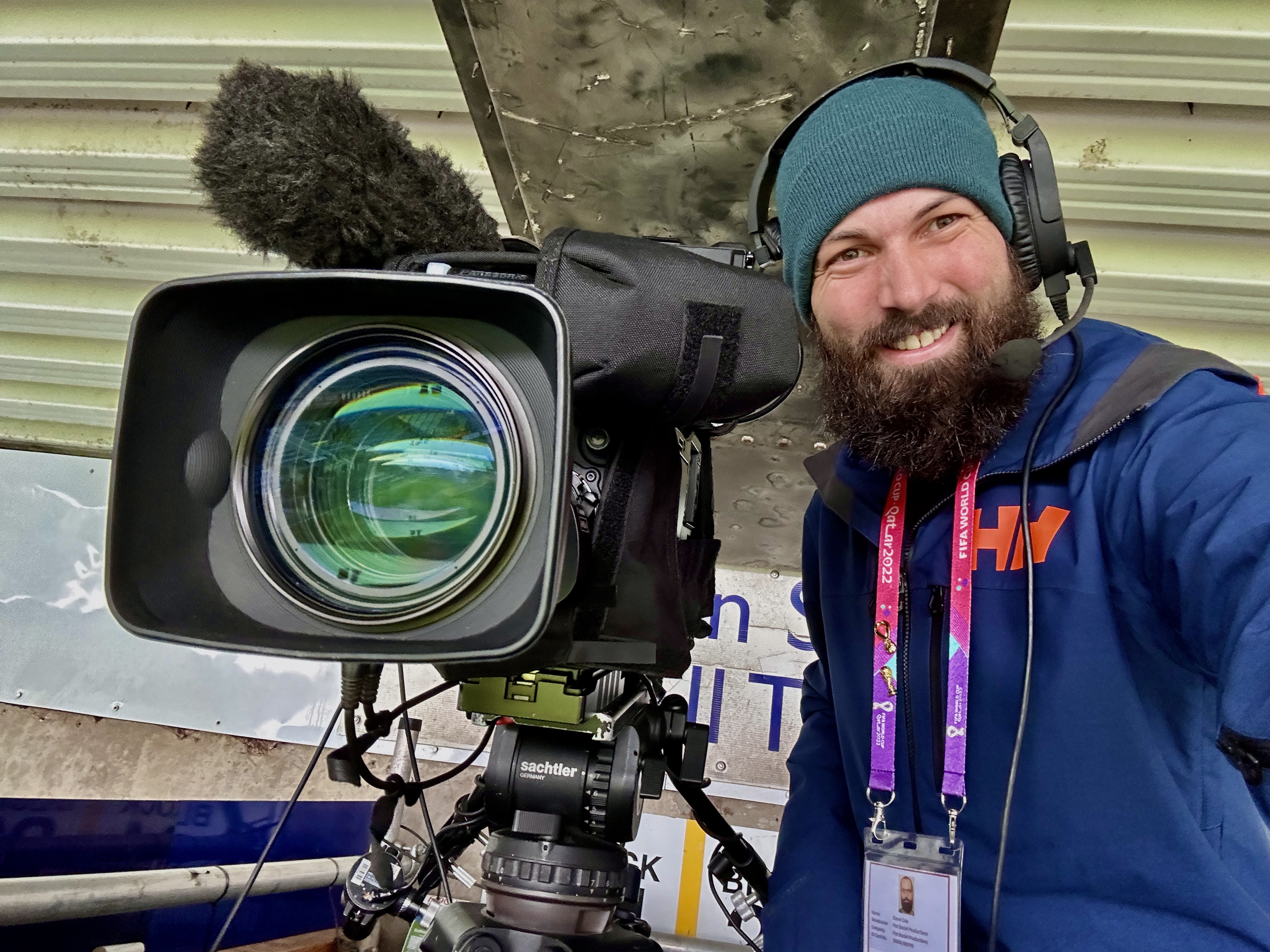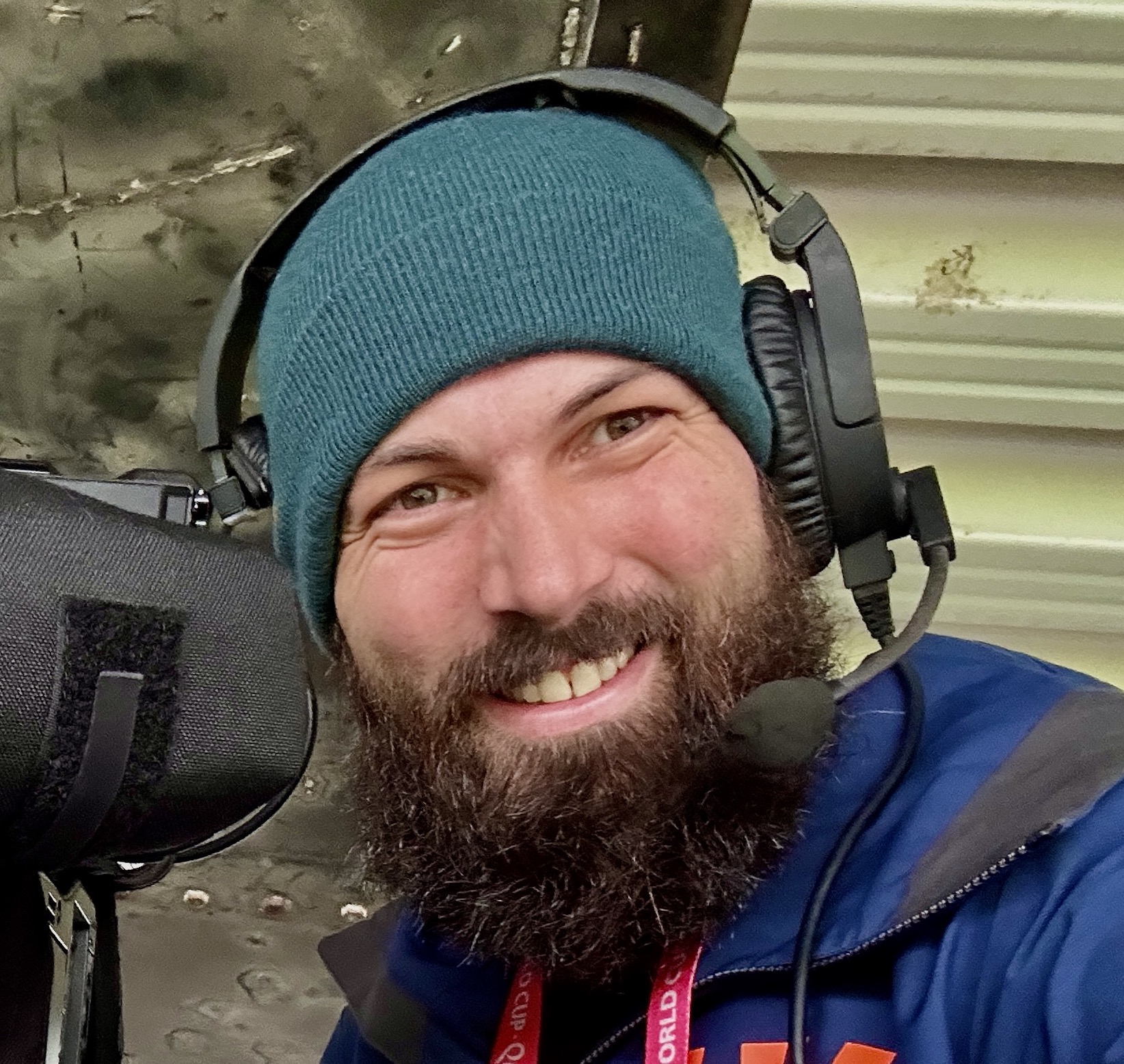Anton/Bauer Powers Reliable Broadcast Sports Production
I used to carry upwards of 10 batteries on some shoots, now I just carry four

IPSWICH, U.K.—As a freelance broadcast camera operator, I find myself covering all sorts of events and scenarios across the country, mainly sports. It has been commonly said that the U.K. can experience all four seasons in a day, which means my kit needs to easily withstand all of them.
Before I made the switch to Anton/Bauer, my least favorite season was winter. This is because batteries—all batteries—hate the cold. However, some deal with this issue better than others.
One of the mainstays of my work is EFL football, the majority of which is covered by four camera remote broadcasts using owner operators linking to a director and replay op based at IMG in London. The bulk of U.K. football is played in the colder months which can wreak havoc on power solutions.
Powerful Problems
Until I switched to Anton/Bauer Titon batteries, power was always a problem. I used to do FACS checks on one battery, warmups on another, first half on yet another and then a final battery change at halftime because I just could not trust my old batteries. In addition to how rapidly they would decline, the power indicators were completely arbitrary, looking almost full for most of the time, then suddenly dropping.

Since making the switch, this problem has become a thing of the past. I ended up getting two Titon 150’s and two Titon 240’s and I can do all of the above on one Titon 240 battery with no changes. And if I do start to worry, all I need to do is check the accurate time remaining display on the side of the battery to see exactly how much time I have left.
Most camera positions in a stadium do not have power unless they are on the main gantry; even then, the power can be unreliable, so a good set of batteries is essential. I used to carry upwards of 10 batteries on some shoots, now I just carry four.
I also do a lot of work using the OB company’s kit, and some of these regular jobs use RF cameras.
Often the batteries provided are not particularly high quality and I can end up doing a battery change every half hour to an hour, which can frustrate and prevent me from fully focusing on the job. Not only that, but weight becomes a huge issue when shouldering an RF camera, and batteries can be very heavy.
Less Stress
Therefore, I started bringing my Titons to these jobs just to make my life easier, and it’s been a game changer. The Titon 150 and 240 batteries are both considerably lighter than other batteries I have used and more powerful. I can run an RF link, camera, my Litepanels Brick (powered by the D-tap on the battery) and various other bits for over 2-3 hours on a 150 and almost five hours with a 240, making work far less stressful.
The Titon batteries have another added benefit for me, a USB A connector that allows me to charge USB devices while simultaneously powering my kit, which is so convenient. This is particularly useful as I use an action camera to record behind-the-scenes content for Instagram and other social media, and my action camera has a tiny battery. This extends to other handy things like being able to charge my phone, which has been especially useful when comms go down and my phone is the only link to the director.
More information is available at www.antonbauer.com.
Get the TV Tech Newsletter
The professional video industry's #1 source for news, trends and product and tech information. Sign up below.
For more than 14 years Steve Cole has been enjoying life in live broadcast, starting as a camera operator and shortly after, adding PTZ/remote camera operation, RF/handheld ENG camera, lighting camera and racks operator to his skill set. He covers music festivals and large concerts, FIFA World Cup, Premier League and Championship Football, Olympic and Wimbledon, touring cars, British GT, horse racing, news, etc. Steve works with reputable OB companies and broadcasters such as NEP, Gravity Media, Cloudbass, ITV, BBC, and Sky Sports.

